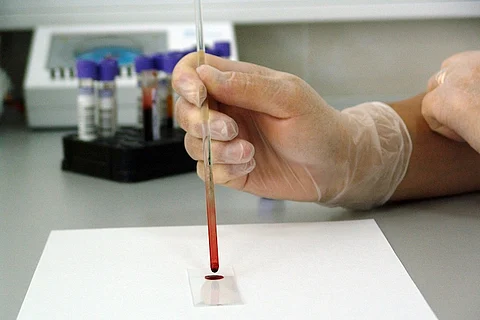

The Kerala government has been taking swift measures to check a potential outbreak of the Nipah virus. Armed with the experience from 2018 when the Nipah wave claimed 17 lives in Kerala, the state Health Department has adopted new measures to confine its spread.
One such method is ‘contact tracing,’ where the government tracks down persons who at any point in the last 3 weeks, had been in contact directly or indirectly with the affected patient. Contact tracing was developed by the World Health Organisation to curtail the Ebola virus when it broke out in Africa.
The contact list used for observation has been prepared by the Kerala Health Department. Persons who have a higher likelihood of contracting the virus due to their contact with the patient are mentioned on the list. These are persons who were in direct contact with the patient’s bodily fluids as well as those who operated within a one-metre distance of the patient during the three-week window. People marked for observation are further split into categories based on risk levels.
Family members, persons who treated the patients, those who stayed with the patient for at least a single night in the same room and those who spent over 15 minutes with the patient either at home, in a vehicle or in the hospital are part of the list.
Drivers who drove the patient to hospitals, bystanders, those who handled the patients clothes, bed sheets, vessels and other objects and those who touched the patient’s body directly also figure in the contact list.
Also included are those who were in the hospital ward where the patient was receiving treatment and those who touched or handled his bodily fluids and waste such as saliva, urine, faeces and vomit.
Doctors, nurses, ward attenders and other hospital staff who came in contact with the patient are also observed.
The preparation of list isn't limited to just names. Officials go into exhaustive detail by recording dates of contact, amount of time spent in contact with patient and the ways in which these persons were in contact with the patient.
They will also check if hospital staff (including doctors ad nurses) had worn safety equipment and followed security protocol while coming in contact with the patient.
Daily visits by health officials
For those who figured in the list, an observation period of 21 days is mandatory. During the 21 days, these people are requested to stay indoors and avoid long travels. Not visiting crowded spaces like festivals, weddings, gatherings, cinema halls and malls is crucial.
Whenever a Nipah case is confirmed, Health Department officials visit the homes of these patients and record information elaborately using specially prepared forms. These details are collected daily, analysed and used to prepare and expand the contact list. This requires people to furnish accurate information to officials.
In case another member of the family or friends/known persons start exhibiting symptoms, department officials have to be immediately alerted over call. Further measures will be taken based on their instructions.
Health Department officials will bring with them specially prepared ambulances and take the patient for testing to an isolation ward-equipped hospital.
Diagnosis will be done and treatment will be provided to the patient based on the type of fever. If a person is exhibiting Nipah virus symptoms, care must also be taken by members of houses to avoid holding feasts or gatherings.
The 21-day window is observed from the last day the observed person came in contact with the Nipah patient or a corpse.
In this period, if a person under observation does not exhibit any symptoms of the virus such as fever, headache etc., they can resume a fully normal life, including going to work and travelling. Their names will also be struck off the list.
If there is no confirmed case of Nipah after 42 days of the last confirmed case in a place, that region will be declared free of the virus.